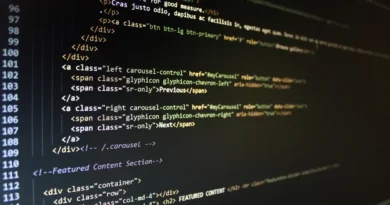12 Things To Know If you Are Connected To Public Wifi
There are a few things you should be aware of if you often use free public WiFi. It turned out that public WiFi networks were not as safe as they looked to be at first. Any third party with access to your online traffic can tamper with it and monitor your activities.
Naturally, a good antivirus programme and a VPN are important components of a secure system, but there are a few other things to keep in mind.
Things To Know If you Are Connected To Public WiFi
As a result, we’ve compiled a list of the most important things to keep in mind when using public WiFi. Let’s take a look at what you need to know if you’re using public WiFi.
1) Make sure it’s real
Ask the WiFi hotspot’s owner for the right network name and password before you start typing. If there is no WPA or WPA2 present, this indicates that the connection is unencrypted, so be careful.
Fake WiFi hotspots that resemble the real thing should always be avoided. Furthermore, when using a WiFi network, it is recommended that you connect using a VPN.
2) Look for a secure connection, such as HTTPS
HTTPS encryption is required for all online pages you visit. Look for HTTPS in the URL address bar or the security padlock icon to confirm this.
SSL/TLS encryption reduces the risk of a “Man-in-the-Middle” attack by certifying that the website or a specific web page has a valid digital certificate (MITM).
For your safety and the safety of others, never divulge important data via unencrypted networks like social media or online banking.
3) Update Your Software constantly
Regular software updates are critical for WiFi network security. The best way to be safe online is to keep your web browser, software, and antivirus software up to date at all times.
As a result, if you often use Public WiFi, you should keep your software up to date. Make careful to keep the software up to date whenever you can.
Also Read: How to Fix Wifi Adapter Error Code 10
4) Avoid getting your hands on confidential information
A public WiFi network cannot be used for accessing sensitive information such as email, online banking transactions, credit card accounts, or any other sensitive information.
Antivirus & Firewall software must be installed on your home network for this task to be completed.
5) Wi-Fi networks can be manually selected
Instead of connecting automatically, be sure you explicitly pick a WiFi network on your laptop, tablet, or smartphone. When your network isn’t being used, be sure to disable WiFi Sharing.
To prevent your device from reconnecting when you return to the region, make sure you click “forget” networks that are no longer in use.
6) A virtual private network (VPN) can help protect your privacy
If you’re always on the move and don’t have access to a VPN or dongle, opt for free public WiFi instead (VPN). If you’re looking for the most secure method to access the web, this is it.
VPNs protect your networks with the greatest levels of encryption and security, and they also hide your IP address, making you less vulnerable to phishing scams.
7) If Possible, Make Use of Your Mobile Data
If you’re in a rush and can’t wait to go to your online banking, consider using your cell phone’s network instead of a public WiFi hotspot.
Aside from banking sites, the rule applies to any site where you need to enter any sensitive information. So, if feasible, use your cellular data instead of public WiFi whenever possible.
Also Read: How to Prevent WiFi Hacking?
8) Enable two-factor authentication (2FA)
Whenever feasible, utilise two-factor authentication to protect your account. Everyone who connects to a public hotspot should use 2FA.
SMS containing an encrypted code is delivered to your registered phone number in two-step authentication. Afterwards, you’ll have to input the code into your account to get entry.
9) Enable Firewall
A firewall is now a standard feature in most modern operating systems. A firewall is a network security device that keeps tabs on all traffic entering and leaving the network. A firewall prevents local people from accessing your computer and tampering with it.
Go to System and Security in the Windows Control Panel. Locate and turn on the Firewall option under System and Security.
10) Make Use of an Effective Antivirus Program
Antivirus software is the greatest technique to protect yourself from hackers’ nefarious tactics.
As a result, if you frequently use free public WiFi, you should protect your device with an antivirus programme.
11) When you’ve done, log out
When attempting to get into an account, never store your password in your web browser. Additionally, pressing the logout button at the end of your work session might be a good idea.
That’s why you should always remember to log out after you’re done.
12) Turn off your WiFi connection if it is not necessary
When you’re not using WiFi, it’s preferable to turn it off. The battery life of your phone or tablet might be improved by disabling WiFi. Bypassing public WiFi networks is another benefit. As a result, if you don’t need WiFi, turn it off.
Conclusion
These are some things to keep in mind before attempting to connect to free public WiFi. I’m glad you found this information useful! Please pass it along to your social network as well. Let us know if you have any questions or concerns about this in the space provided.




